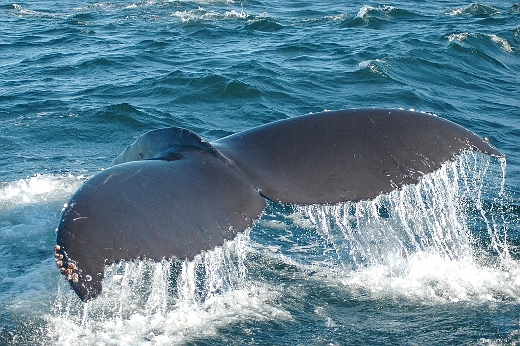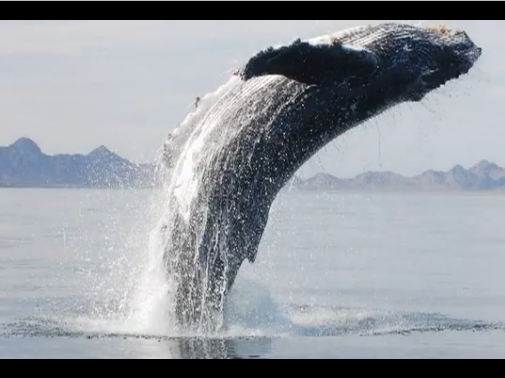The Panama News published an article by Greenpeace International on the ongoing problems faced by the International Whaling Commission some of whose members block attempts to ban the slaughter of whales around the world.
I am struck by the absurd claims of Japan and other nations who say the slaughter is for scientific purposes and the harvest of whale meat that serves no real purpose. Anyone who has been to the Pacific Ocean in locals like Alaska, Mexico or down here in Panama during the migration of the herds of Humpbacks will tell you of the marvel of seeing these gentle giants.
IWC summit delivers promise for increased
whaling, too little for whale conservation
by Greenpeace International
As the 64th annual meeting of the International Whaling Commission (IWC) closes in Panama City, Greenpeace International whales campaign coordinator John Frizell delivered the following statement:
“Once again, whale conservation lost out at the IWC. Despite a strong majority and overwhelming regional support for a much-needed South Atlantic whale sanctuary, a minority of distant nations masterminded its rejection. South Korea shocked the world by using the IWC as a platform to announce a plan to slaughter whales in the name of science. The fact is that the IWC has become a megaphone for whalers rather than a body focused on rescuing declining whale populations.”
“The future of the IWC lies with conservation measures, not whaling. A majority of IWC members stand opposed to whaling, yet their efforts to transform this organization are being blocked by Japan and its allies. It is shameful that a tiny minority can block the will of the majority while the threats facing whales grow ever more serious.”
“The 20th century saw the greatest destruction of whale populations in history. The 21st century must be one of restoring these populations. We will continue to pressure governments to bring this reckless and unneeded whaling to an end.”
Conservation advances at IWC
by WWF
The 64th annual meeting of the International Whaling Commission (IWC) closed with major steps toward the conservation of whales and dolphins, many of which are highly threatened. Meeting in Panama City this week, governments pushed forward initiatives geared at reducing dangerous marine debris and minimizing subsea noise from industrial activities, which can disorient and injure and even kill whales.
“WWF commends IWC member states for joining together to tackle the most critical threats to cetaceans, such as fisheries by catch, ship strikes, and the expansion of oil and gas development.” said Wendy Elliott, head of WWF’s delegation to the IWC. “As land-based resources are depleted, exploitation of the oceans is growing rapidly. We must not allow another shameful decline of whales from human activities, which were driven to near extinction during the peak years of whaling.”
Warnings from the IWC’s Scientific Committee about the grave state of Mexico’s vaquita porpoise and the Maui’s dolphin in New Zealand generated expressions of deep concern from many countries. The committee recommended that Mexico and New Zealand ban all fishing gill nets from the critically endangered animals’ habitats to prevent entanglement deaths.
Here is a great video on the release of a humpback whale from a gill net. Click on the picture to see it.
Humpback Whale Shows AMAZING Appreciation After Being Freed From Nets
New threats
IWC governments also expressed concern over the threat posed by increasing development of off-shore oil and gas projects. The whale-rich Arctic waters off Alaska could see their first ever drilling operations from oil giant Shell as early as this month. Shell admits that technology does not exist to clean up an oil spill in harsh Arctic conditions.
“Considering that the Gulf of Mexico oil spill could not be contained, even in the best of conditions, an Arctic spill would cause an even greater environmental disaster,” said Leigh Henry, Senior Policy Advisor for WWF-US. “At this point in time, the risks from oil and gas operations in the Arctic, including the noise pollution that impacts whales’ ability to survive, outweigh the benefits. Arctic drilling is a short-sighted solution to our long-term energy needs.”
Similarly, in the Russian Far East, oil companies are planning to build new off-shore drilling platforms near the feeding area of critically endangered western gray whales. It was noted by governments that the cumulative impacts of additional platforms have not been studied.
There are only an estimated 150 western gray whales remaining, and the waters off Sakhalin Island are the only place where they can teach their calves to feed. Loud noise pulses used by oil companies in the exploratory phase are known to interfere with whales’ behavior and could cause western gray whales to abandon their primary feeding habitat.
Monaco’s commissioner cautioned that the expansion of oil and gas exploration is a “dangerous development” taking place worldwide that could seriously interfere with preservation of the marine environment.
Fireworks on IWC floor
The meeting’s most explosive moment came Wednesday when the Republic of Korea shocked delegates by announcing plans to conduct so-called ‘scientific whaling’ of an endangered minke whale population. The move triggered widespread condemnation from conservation groups and world leaders, including Australian Prime Minister Julia Gillard.
The meeting also witnessed debate over a proposal from Monaco for greater engagement of the United Nations in addressing unregulated whaling on the high seas conducted outside IWC’s control. Unable to reach a consensus decision, it was decided that discussions on the topic would continue after the meeting.
Just before close of the gathering, IWC governments decided to shift to bi-annual meetings, although no nation has stepped forward to host the commission in 2014.
Mixed week for whales as meeting draws to a close
by the International Fund for Animal Welfare
This year’s meeting of the International Whaling Commission (IWC) drew to a close after a mixed week for whales.
While much of the agenda at the week-long meeting in Panama City, Panama focused on conservation issues and threats to whales beyond whaling, delegates also heard the Republic of Korea state its intention to embark on a so-called scientific whaling program.
Earlier in the week, a proposal for a South Atlantic Whale Sanctuary, held over from last year’s meeting following a walkout by Japan and its pro-whaling bloc, was considered but failed to receive a three-quarters majority vote among member countries present. It would have provided greater protection to whales in the region.
Brazil indicated its intention to present the Sanctuary proposal again at the next IWC meeting.
Patrick Ramage, Director of IFAW’s Global Whales Program, said: “Results this week have been mixed. While the IWC is carrying out good work on whale conservation and the many threats faced by our planet’s whales today, sadly, commercial whaling continues without the IWC doing anything to stop it.
It is vital that the IWC properly addresses the cruel killing of whales for products that nobody needs. With Korea threatening to join Japan, Iceland and Norway in this unnecessary slaughter, decisive action is needed.”
The meeting closed after discussion of a proposal by Monaco for the United Nations to play a more significant role in stopping whaling. It was agreed that a working group would be set up to take the matter forward.
The International Fund for Animal Welfare backs the proposal for UN intervention.
Ramage added: “Elevating discussions on whaling to a more senior diplomatic level would help address the behavior of whaling countries such as Japan who are intent on using sham science and procedural tactics to circumvent the global moratorium on commercial whaling.”
IFAW opposes whaling because it is cruel and unnecessary; there is simply no humane way to kill a whale. Responsible whale watching offers a humane and economically viable alternative that is better for whales and provides more sustainable livelihoods for people.

